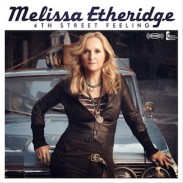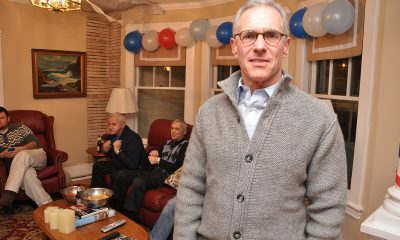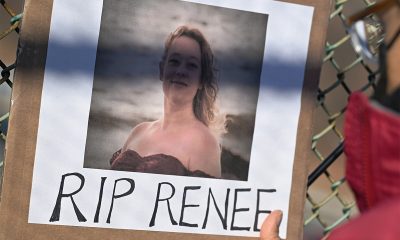Arts & Entertainment
Etheridge comes full circle
Out rock icon talks about her newest release taking us back to her roots; chats election year politics
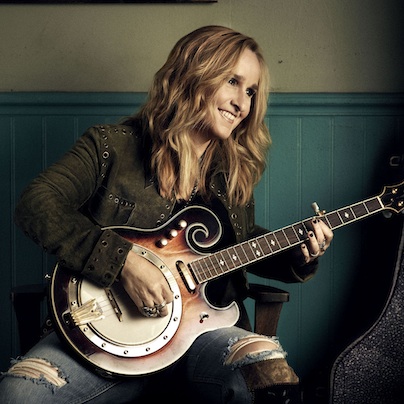
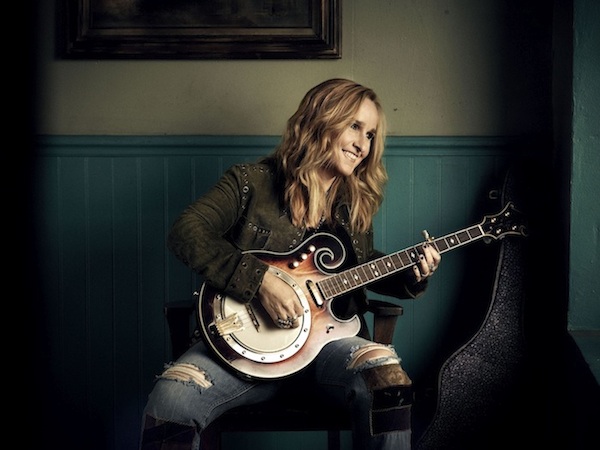
On the eve of her 25th year in the music industry, Melissa Etheridge is taking new risks, picking up new instruments and returning to her childhood roots. (Photo by James Minchin III courtesy Island Records)
Listening to Melissa Etheridge’s “4th Street Feeling,” out this week on her home label for 24 years, Island Records, one might agree with the dynamite rock legend’s own description of the sound as “organic.”
After adopting a more pop, adult contemporary sound in the middle of the last decade for singles like her cover of Greenwheel’s “Breathe,” the Oscar and two-time Grammy winning icon has returned to a nostalgic country blues sound that would flow well into a playlist with other artists she says she once played on her Chevy Impala’s 8-track in the ‘70s while driving the strip the album was named for in her hometown of Leavenworth, Kan.
Breaking barriers first by coming out in the early ‘90s and then rocking a Janis Joplin tribute live at the Grammys, bald from radiation and chemotherapy during breast cancer treatment, Etheridge returns to where she was born and raised for her eclectic 11th studio album, while experimenting with some new elements as well — like the banjitar featured in the first single “Falling Up.”
Etheridge, who will be honored at the National Museum for Women in the Arts starting today as part of the exhibition “Women Who Rock,” will bring her 4th Street Feeling tour to Bethesda’s Strathmore Music Center on Nov. 2.
““This next year, 2013, I’ll have been in the professional music business for 25 years,” Etheridge says of the National Museum for Women in the Arts exhibit when she sat down with the Blade to discuss her new album, the tour and the election year. “It’s nice to be honored. To be part of a wonderful community, the wonderful quilt of artists in our society that have brought forth the human experience.”
Etheridge has always been known as a confessional musician, but her personal woes have been on display in a new way with her high-profile 2010 split from actress Tammy Michaels and the contentious alimony and custody cases that have only recently been resolved. Nevertheless, the gravelly-voiced composer sings about her readiness to accept love again on her newest release, telling the Blade that when she sings, “I think I’m ready to try my hand at love again” in the track “Rock & Roll Me,” she’s singing about her budding relationship with “Nurse Jackie” creator Linda Wallem, whom she met through her ex.
““I don’t think we’re ever ready,” she says. “Like if it was up to me I’d still be sitting up in my room, ‘No! No! I’m not going to do that again!’ But love has a way of coming and the relationship that I’m actually in now, she’s been my best friend for 10 years. Believe me, I wasn’t going to go out and look for it, it found its way into my home. I’m very happy. Yes I am ready to try my hand at love again.”
Washington Blade: So the ‘banjitar’: where did you find this instrument?
Melissa Etheridge: It kind of started when I was writing songs to go play on the album, before I went to record. Listening to the radio, listening to popular music trends, I was delighted that people were playing organic instruments. I was hearing mandolins and banjos and real instruments.
I remember thinking, “I can play the banjo.” You know. I’m not terribly good at it, I played it a long, long time ago, but I can play a song on it.
So when I wrote “Falling Up,” I thought, “Yeah, I want to put banjo on this,” so I brought my banjo to the studio, and I said, “Yeah I’m going to play the banjo; not so good at it but you know, it’ll be fine.” And my guitar tech, Mark VanGool — he’s just a genius guitar guy — well why don’t you play the banjitar. I look at him like, ‘What are you talking about,’ and he says, “Yeah, its a banjo body, but its got a guitar neck, so you play it like a guitar, but it sounds like a banjo.” I said “That just sounds perfect!”
So he had one. He brought it. I played it, and the rest is history.
The album might be a dying art, with everyone being able to just buy singles so much. And really, I still think in a collection of music, not just one song. So all the songs are really different. It was hard to pick a first single. What’s representative of this album? It’s really hard. The record company chose “Falling Up,” and I was like “OK.”
Blade: You described that 4th Street feeling as the freedom to put everything you owned into your Chevy Impala. You’ve been on a long journey from Leavenworth Kan., so it’s interesting that the emotional center of this album has us listening to Al Green and Tina Turner on your old 8-track. Why was it so important for you to bring us all back here with you?
Etheridge: Because that’s where my journey took me. I thought in the spiritual evolution of aging and gaining wisdom that I would somehow shed all my old stuff and become something new. What I found is the only way you can become something new is to completely embrace all the old that you are and understand where you came from, and hold it, and even change your past in a way — in the way that you perceive it. In the way that you hold it now. And music takes you right back there. It’s obvious that we’re doing some reminiscing as a society right now. The music sounds like it’s right out of the ‘60s or something, everything is retro, it’s going back. It’s like taking the best of what we did do and growing on it. The organic stuff. That’s what I found. I’m not getting away from this, I’m being in this, and seeing it as something better.
Blade: You sing “Shake it like a polaroid” in your first single “Falling Up” which sounds like a nod to Outkast’s Andre 3000. Who are some other contemporary top 40 artists that you appreciate?
Etheridge: Oh yeah! Love Outkast. Always have. I think they’re very innovative and creative. I can cross all genres. My kids especially — like my daughter — play artists, she first turned me onto Ellie Goulding. She’s a little pop for me, but I appreciate a lot of the singer-songwriter stuff. Loved the Mumford and Sons album, Band of Horses, love Black Keys, (I’m) loving Alabama Shakes. All these great artists that I just want to see live and jump around with.
Blade: You came out 19 years ago and released “Yes I Am.” Just recently, R&B singer Frank Ocean followed your script, coming out and dropping an album; how has the music industry changed for gay musicians since ‘93?
Etheridge: Well, there’s safety in numbers, you know? I think in the ‘90s when those of us were peaking out, it was a sparse field. But I think everyone was kind of watching going, “Well, are you going to lose everything? Is it going to be like what we think?” And it’s all about how you kind of hold yourself in it.
Back then we did it. Did it hurt my career? I say, “I went from selling one million to six million.” People can see that I’m not blaming any of my perceived failures on being gay, so I hold it that way. Its just part of who I am. Its part of the big tapestry of who I am.
I don’t think there’s that big of a difference [between the current gay male artist experience and the experience for out lesbian artists]. I think we’re all aware of our society’s hang-ups when it comes to sexuality. We’ve realized that our sexual desires is what makes us different and dangerous. We’ve all grown up with it. We also know that the male aspect of that sexuality can be really frightening to a lot of people, so I think that it is somehow looked at as it’s harder to be a gay man and open in the entertainment industry. You’ve got to be really solid to do that. In general, it’s a little more delicate of a subject, just because of all the fear.
Blade: Four years ago, you took part in the historic Logo-HRC Presidential panel, and you were fairly vocal leading to the general. What do you think of what’s happened since then?
Etheridge: In the last 20 years, especially the last four, I think [the LGBT community has] become wiser about what part we play in this American drama that keeps unfolding in front of us, this experiment called Democracy and America and equality and what it really means. We challenge it to its very core and we’ve seen how we’ve been played in this game. OK, our votes are important, but no one can ever give us full cooperation, or they might be deemed less than, weak, or whatever scares them from giving us our civil rights. So I think this last thing that Obama did, by saying he supports gay marriage, it changes the direction of the stream just enough to kind of give us “Alright, there’s a reason we’ll vote for you again. Yes, you need our votes.” Because we’re a large group of people that cuts across every kind of people. And it also cuts across so many of our deep-seated fears in our whole culture. It’s a challenge. We’re challenged people, and we are challenging. And I think the homosexual community are the leaders in our great societal change right now. We are really pushing it, and I think it’s great.
Blade: What do you think of the Romney-Ryan ticket?
Etheridge: I think it’ll be a really interesting Trivial Pursuit question in 20 years. “Who was that running mate? Who was the Mormon guy?” I think it is fascinating. If you’d have told me in the ‘80s, “Oh my God, in 2012 there’ll be a black president — half black and half white — and he’s going to run against a Mormon with a Catholic Vice Presidential candidate …” But that shows that we are so diverse, that we are really opening up to all. You know what, in this great America of ours, there’s mixed-race people, there are Mormons, there are Catholics, there are every type of person and we have to show the world how it can all get along.
Blade: What are your thoughts on Rep. Todd Akin and his “legitimate rape” statement?
Etheridge: Things are spread instantly. A sentence can leave your mouth, and in a half hour, your life could be totally changed. I love that instant accountability that we have now. And it also gives us an opportunity to examine ourselves and go “Whoa! These deep-seated beliefs or fears are still there!” There’s a lot of dark shadowy ignorance out there in the world, and its coming to the surface, and we’re going to see it in some of our quote-unquote leaders. I don’t think we should shut him down. “OK dude. Wow. Let’s talk about that. What makes it legitimate or not?” Bring these things to the forefront and then let people vote their conscience.
Blade: It always seems with the LGBT community it’s two steps forward, two steps back. We’ve had months of good news, but we’ve had setbacks in North Carolina, some high profile anti-gay attacks and murders and just last week here in D.C. a member of our LGBT community shot a security guard at the Family Research Council’s headquarters. As an artist how do you respond to these crises of community?
Etheridge: I look at the LGBT community as the balance. We are all searching for balance right now. Our whole society. The whole human race. The gay community — we are examples of balance, because we have both the male and female inside each of us. And that’s pretty special. And when we can learn to love that about us more, then we’ll see that there are emotional distresses in every type of person in every walk and choice of person, and that there’s a lot of sadness and a lot of fear and it makes you perfect and normal. And we have to realize that our diversity is our strength, not only in our community but in our country, in the world. It’s loud and clear we better jump on that wagon, that everyone is different, and you have to celebrate those differences, otherwise we’re just going to destroy ourselves. So I appeal to the LGBT community and say, “Hold yourself as someone very special. Believe in who you are, and hold your balance. And that will help balance the rest of the world.”
Out & About
Love board games and looking for love?
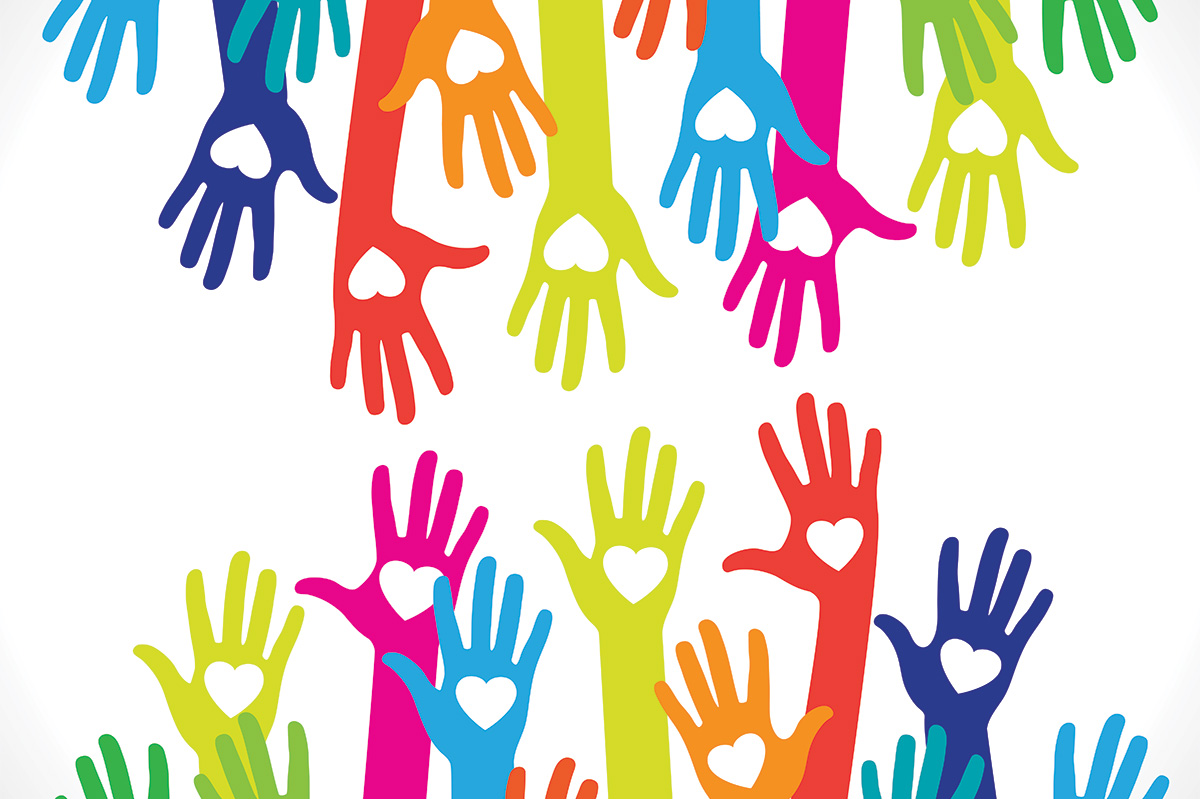
Quirk Events will host “Board Game Speed Dating for Gay Men” on Thursday, Jan. 22 at 7 p.m. at KBird DC.
Searching for a partner can be challenging. But board games are always fun. So what if you combined board games and finding a partner?
Picture this: You sit down for a night of games. A gaming concierge walks you through several games over the course of the night. You play classics you love and discover brand new games you’ve never heard of, playing each with a different group of fun singles. All while in a great establishment.
At the end of the night, you give your gaming concierge a list of the folks you met that you’d like to date and a list of those you met that you’d like to just hang out with as friends. If any two people put down the same name as each other in either column, then your gaming concierge will make sure you get each other’s e-mail address and you can coordinate a time to hang out.
Tickets cost $31.80 and can be purchased on Eventbrite.
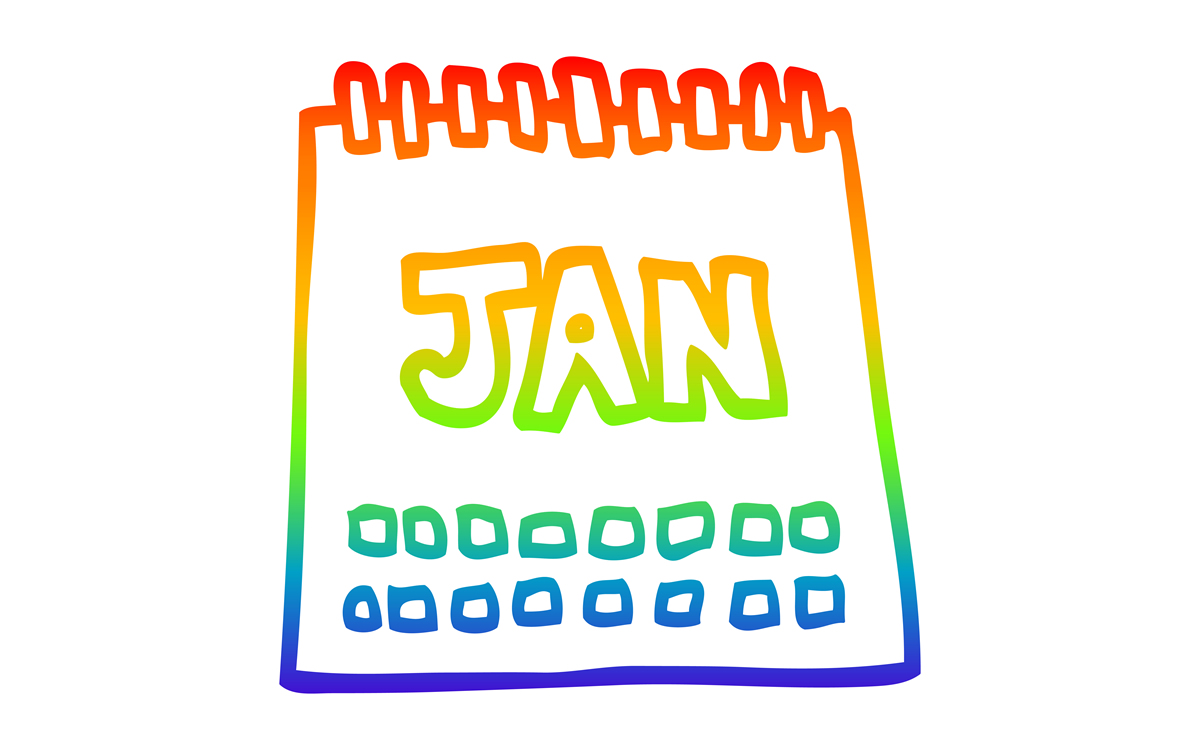
Friday, January 16
Friday Tea Time will be at 12 p.m. at the DC Center for the LGBT Community. This is a social hour for older LGBTQ+ adults. Bring your beverage of choice. For more information, contact Mac ([email protected]).
Trans and Genderqueer Game Night will be at 7 p.m. at the DC LGBTQ+ Community Center. This is a relaxing, laid-back evening of games and fun. For more details, visit the DC Center’s website.
Go Gay DC will host “LGBTQ+ Social in the City” at 7 p.m. at Hotel Zena. This event is ideal for making new connections and community building or just to unwind and enjoy extended happy hour. Attendance is free and more details are available on Eventbrite.
Saturday, January 17
Go Gay DC will host “LGBTQ+ Community Brunch” at 11 a.m. at Freddie’s Beach Bar & Restaurant. This fun weekly event brings the DMV area LGBTQ+ community, including allies, together for delicious food and conversation. Attendance is free and more details are available on Eventbrite.
The DC LGBTQ+ Community Center and SMYAL will host a free film screening of “Mama Bears” celebrating queer youth, resilience, and the power of living authentically. Whether you’re a movie lover, looking to make new friends, or simply want a safe, affirming space to relax, this event is for you. Click this link to RSVP.
LGBTQ People of Color will be at 7 p.m. on Zoom. This peer support group is an outlet for LGBTQ people of color to come together and talk about anything affecting them in a space that strives to be safe and judgement free. There will be all sorts of activities like watching movies, poetry events, storytelling, and just hanging out with others. For more details, visit thedccenter.org/poc or facebook.com/centerpoc.
Sunday, January 18
Go Gay DC will host “LGBTQ+ Community and Conversation” at noon at As You Are. This event is for those looking to make more friends and meaningful connections in the LGBTQ+ community. Look for the Go Gay DC sign on the long table near the front window. Attendance is free and more details are available on Eventbrite.
Monday, January 19
“Center Aging: Monday Coffee Klatch” will be at 10 a.m. on Zoom. This is a social hour for older LGBTQ adults. Guests are encouraged to bring a beverage of choice. For more information, contact Adam ([email protected]).
Tuesday, January 20
Center Bi+ Roundtable will be at 7 p.m. on Zoom. This is an opportunity for people to gather in order to discuss issues related to bisexuality or as Bi individuals in a private setting.Visit Facebook or Meetup for more information.
Tae Kwon Do Class with Avi Rome will be at 12:30 p.m. This inclusive and beginner-friendly class, led by Instructor Avi Rome, offers a light warm-up, stretching, and instruction in basic techniques, patterns, and striking padded targets. Each session is designed to be adaptable for all ability and mobility levels, creating a welcoming space for everyone to build strength, confidence, and community through martial arts. For more details, visit the DC Center’s website.
Wednesday, January 21
Job Club will be at 6 p.m. on Zoom upon request. This is a weekly job support program to help job entrants and seekers, including the long-term unemployed, improve self-confidence, motivation, resilience and productivity for effective job searches and networking — allowing participants to move away from being merely “applicants” toward being “candidates.” For more information, email [email protected] or visit thedccenter.org/careers.
Thursday, January 22
The DC Center’s Fresh Produce Program will be held all day at the DC Center for the LGBT Community. People will be informed on Wednesday at 5 p.m. if they are picked to receive a produce box. No proof of residency or income is required. For more information, email [email protected] or call 202-682-2245.
Virtual Yoga Class will be at 7 p.m. on Zoom. This free weekly class is a combination of yoga, breathwork and meditation that allows LGBTQ+ community members to continue their healing journey with somatic and mindfulness practices. For more details, visit the DC Center’s website.
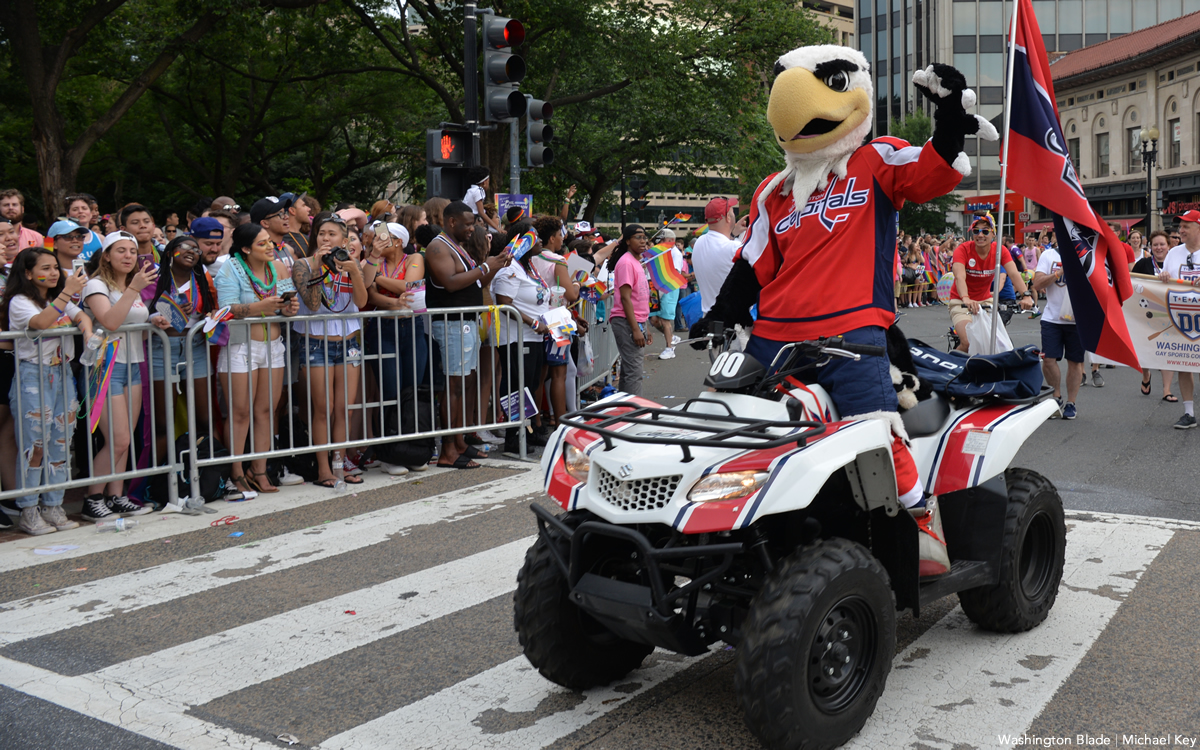
The Washington Capitals will host Pride Night on Saturday, Jan. 17, when they host the Florida Panthers at Capital One Arena. A special ticket offer featuring a Pride-themed Capitals rainbow jersey is available at washcaps.com.
Fans are invited to a pre-game Block Party at District E beginning at 5 p.m. The event will feature a performance by the band NovaKane. Specialty happy hour food and beverages will be available, as well as giveaways. There will also be a presence by several local LGBTQ+ community organizations.
-

 U.S. Supreme Court4 days ago
U.S. Supreme Court4 days agoSupreme Court hears arguments in two critical cases on trans sports bans
-

 Photos5 days ago
Photos5 days agoPHOTOS: ‘ICE Out For Good’ Sunday protests
-

 Virginia5 days ago
Virginia5 days agoMark Levine running in ‘firehouse’ Democratic primary to succeed Adam Ebbin
-

 Arts & Entertainment5 days ago
Arts & Entertainment5 days agoTeyana Taylor, Erin Doherty have big night at Golden Globes

